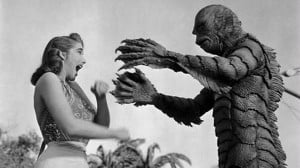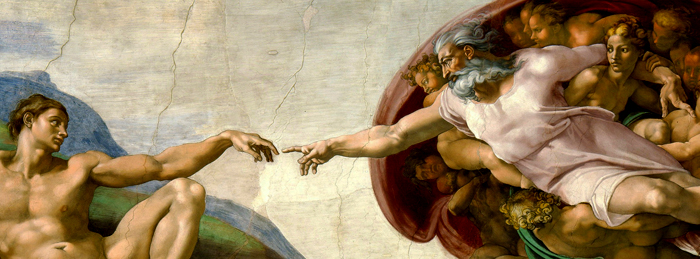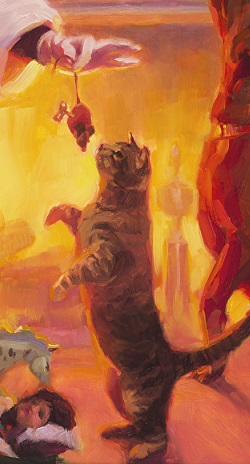Nowadays, dystopia is the rage. Books like The Hunger Games, Divergent, and The Maze Runner seem written for the sole purpose of being turned into movies, with a concerted effort to engage today’s youth into the idea that life, and the future, are hopeless.

A highly promoted genre, dystopian fare addresses a (theoretically, set far-in-the-future) society characterized by overcrowding, human misery, totalitarian control, and a general feeling of despair.
Humanity has been reduced to squalor — everyone dresses drab — and adults my age are represented as broken down, dejected, and worn out, unable to accomplish much more than getting the gruel on the table.
It’s up to some young person — about the age of the audience the movies and books target — to stand up, out of all the millions and millions of mass humanity, and be brave. A key aspect in Divergent is that the main character, Beatrice, cannot be controlled (like the rest of the population) because she is one of those rare people who thinks for themselves — a divergent.
“All people have the capacity to think for themselves,” my son, of the age, but not the mindset, to have his world view shaped by mass media, observed. “The premise is ridiculous, but if you say it enough times, people will start to believe it.”
Exactly.
Asking Questions
And then I began to think about two things:
1) Why is there such intense focus on dystopian themes, especially aimed toward the younger generation?
and
2) When I was part of that younger generation, what kind of movies and TV shows were aimed toward me?
Well, that’s easy — too many afternoons of Gilligan’s Island and I Dream of Jeannie wasted time that could have been spent better by reading a book, taking a walk, or talking to the family dog. My husband, the Norwegian Artist, is amazed, in a flabbergasted sort of way, at my memory for TV characters, the actors who played them, and the theme songs to their shows.
A central message during my youth and young adulthood was the inevitability, and acceptability, of divorce — and don’t hammer me; like everyone in the country today, I have loved ones and friends intimately acquainted with divorce. This is an interesting point, incidentally: in the 6th grade, the “new girl” in the class was from a divorced family — joining only one other such situationally-placed person in a class of 29 other children. We were fascinated by her, as if she were some sort of alien, and asked, “What’s it like — having your parents divorced?”
Nowadays, it is the child with the original model of parents who is the alien — a major societal change effected in just a little more than a generation. Divorce is normal; it’s expected; and it’s considered inevitable, so much so that many young people question whether it’s worth getting married, since everybody gets divorced anyway.
Shaping Young, and Older, Minds
People did not always think this way, but as my Son and Heir observed, if you say something enough, it begins to be accepted as truth.

The mass media of my youth — during the 70s and 80s — focused on divorce, and TV shows like The Brady Bunch, The Partridge Family, and One Day at a Time “explored” the concept of this phenomenon, until it no longer seemed like a phenomenon. Everybody was doing it because, eventually, everybody was, and while it is good to have the stigma removed, it’s not so good to accept, and embrace, a bad solution as the only, and best, option.
While Mike and Carol Brady showed me the relative ease with which a family blends, cop shows and detective movies shaped my opinion of the police, and well into my motherhood I told my children, “You can trust a police officer, because they always do right.”
How did I know this so confidently? I had never met an actual police officer, but my opinions were shaped by Sheriff Taylor of Mayberry R.F.D., Officers Malloy and Reed of One Adam 12, and Starsky and Hutch. Much of what I learned about life, and relationships, and reality — in my formative, youthful years — I learned from TV and movies.
And TV and movies, as we all know, are supposed to be make believe. But do the people making them believe this?
Out in Plain Sight
So now, the world of make believe is showing us the future, one in which people are divided into set, determined groups and controlled, heavy handedly, by a corrupt, totalitarian government. It strikes too close to the truth, and while some would say,
“Don’t be a conspiracy theorist! If this were really the intention of evil parties, they sure wouldn’t show it on a great big movie screen!”
Why not? Ultimately, the result of the message is a sense of hopelessness, a feeling that it’s all inevitable anyway, and there’s nothing anybody can do about it. It’s along the lines of those who believe in the End Times as set forth by the Left Behind movies and books — it’s all going to come to a rotten end before it gets good again, anyway, so why bother?
Such is the message of mass media, pointed straight at the masses, and if you, like me, feel offended at being lumped into a group of easily controlled, mindless automatons, then do something about it, and leave the group. As a Christian, I belong to a different group — a flock of sheep, actually — and rather than allow myself to be controlled, dictated to, and ultimately destroyed by wolves, I’ll focus my time, attention, thoughts, money, and life on the Good Shepherd, who laid his life down for me, as opposed to trying to grasp it in his jaws.
“The thief comes only to steal and kill and destroy,” Jesus says in John 10:10. “I have come that they may have life, and have it to the full.”
I don’t know about you, but much of what I see on mass media — TV, movies, magazines, newspapers, churned out and poorly written books — doesn’t leave me with a sense of abundance in my life, but hopelessness. Why follow that?
Thank You
Thank you for joining me at Commonsense Christianity where I try to separate the truth of life from the lies of man, many of which are well woven into the fiber of our individual cultures.
Posts complementing this one are

